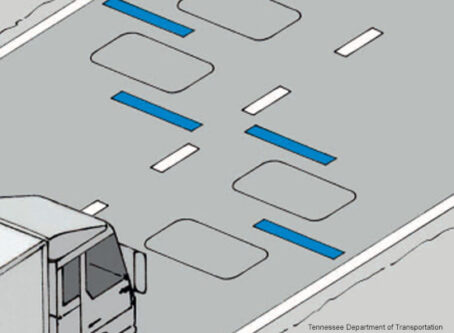Judge tosses lawsuit claiming driver was ‘discriminated’ against due to sleep apnea
USF Holland and Teamsters Local 480 will not have to face a lawsuit brought by a driver who claimed violations of the Americans with Disabilities Act for discriminating against his sleep apnea condition.
On Feb. 3, a Tennessee federal court granted motions to dismiss filed by USF Holland, Teamsters Local 480 and Occupational Health Centers of the Southeast, P.A. Co. (Concentra). The plaintiff, Ernest Southall, accused the companies of discrimination for not accommodating to his sleep apnea. However, Southall had filed a similar lawsuit in 2015, which was also dismissed in 2018. The judge dismissed the latest case after determining it was nothing more than an attempt at a do-over of the first lawsuit.
According to the second amended complaint in the first lawsuit filed in November 2015, Southall began working for USF Holland in November 1999. The driver was diagnosed with sleep apnea in August 2013, which required him to wear a continuous positive airway pressure device, better known as a CPAP.
Southall claimed that in 2013, 2014 and 2015, he was disqualified to drive and was treated differently from other similarly situated patients by Concentra due to pressure from USF Holland.
During that period, the driver also alleged that USF Holland made no accommodations for him to perform alternate work during the times he was disqualified.
The lawsuit states that in September 2014 Concentra told Southall the trucking company had alternate work that did not involve driving. Southall claims that the company received unauthorized healthcare information from Concentra in October 2015. Allegedly, a manager and two other USF Holland employees laughed at him as he slept. During that same time, Southall was told he was not permitted to work.
In November of the same year, Southall claimed he received a letter from the company stating that he had abandoned his job was being removed from the seniority list. The driver claimed that since he filed the initial complaint, USF Holland had threatened termination for clocking in late, written him up for “untruths” and violated his seniority.
In his deposition, Southall testified that sleep apnea does not affect his major life activities. He also stated that he has mild sleep apnea and that it has never affected him. Furthermore, the driver stated that he did not know that sleep apnea was a sleep disorder, and he always checked the box for “No” on his medical forms when asked if he had sleep disorders.
Based on that information, the court determined that Southall’s own statements contradicted his claims of being disabled despite suing USF Holland under the Americans with Disabilities Act. Consequently, the lawsuit against USF Holland and Concentra was dismissed in December 2018.
Southall filed another lawsuit against the two companies in November 2019.
This time, he added the Teamsters Local 480 to the complaint. As the federal court phrased it, Southall “retells the narrative of Southall I as a type of conspiracy among defendants and their counsel.”
In the amended complaint in the latest lawsuit, Southall claimed he was fired in June 2017 after testifying during his first lawsuit. He filed a grievance with the Teamsters requesting reasonable accommodation. However, USF Holland never gave him the accommodations he was seeking. Southall offered a theory about his termination.
“Upon information and belief, this removal was a pretext and done in collaboration with Holland, Holland’s attorneys, Concentra, and Concentra’s attorneys,” the lawsuit claimed. “Holland already knew or should have known about Mr. Southall’s health, but they elected to wait until the deposition to give the impression that the removal was just.”
However, the court determined the latest lawsuit was only an attempted continuation of the first.
“All of plaintiff’s allegations were either raised or could and should have been raised in Southall I,” the court ruled. “Plaintiff is still arguing about the decisions against him in the prior proceeding. It is too late for plaintiff to start over because he lost his first lawsuit. Both issue preclusion and claim preclusion prohibit a second crack (at a claim or an issue, respectively) arising from the same facts. And as for plaintiff’s claim that he did not have a full and fair opportunity to litigate his claims in Southall I, it is nonsense.” LL
Other reporting on court cases by Land Line:
- Moving company owner pleads guilty to racketeering charge.
- C.R. England files RICO suit to recoup $4.7M payout in staged crash scheme.









